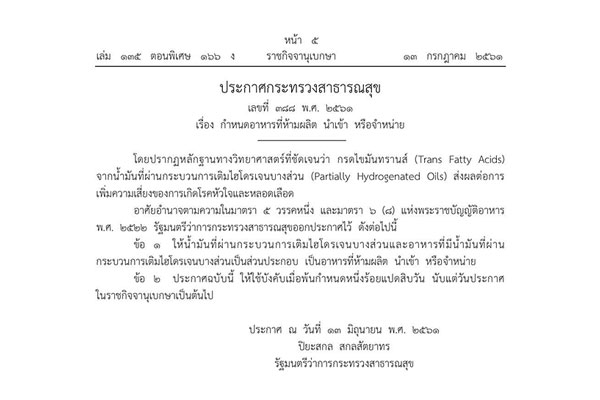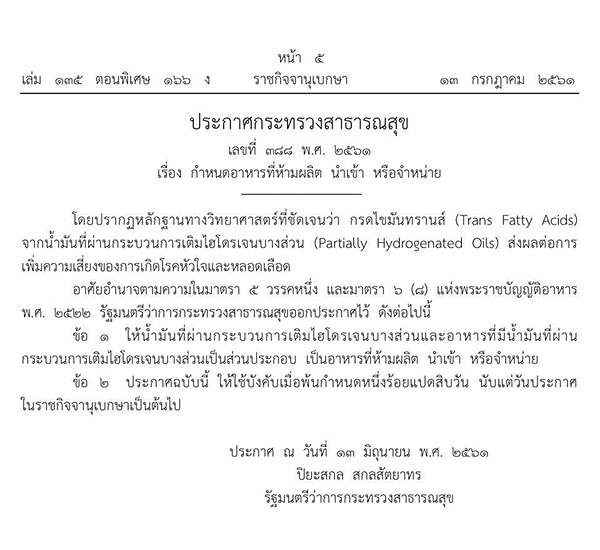Thailand: Trans Fat – Free Country
Institute of Nutrition, Mahidol University



Thailand: Trans Fat – Free Country
Institute of Nutrition, Mahidol University
Title :
Thailand: Trans Fat – Free Country
Researcher :
Prof.Dr.Visith Chavasit
Since trans fat can cause negative impact to consumer’s health, it is therefore the concern of health policy organizations. Besides, it can affect the food exportation to the countries that ban trans fat. The objective of this research was to evaluate the feasibility in freeing Thailand from foods that contaminated with trans fat at the health-harmful level by controlling at industrial partial hydrogenated fats and oils as well as their consequent products i.e. food ingredients and products however not including trans fat from nature.
Our research indicated that commercial food products of certain brands in Thailand i.e. deep – fried donuts, puff, pastries, wafer, margarine and butter were contaminated with trans fat at the health harmful level regarding the World Health Organization’s recommendation (> 2.2 g/day or > 0.5 g/serving). Furthermore, the saturated fats found in all brands of the mentioned food products were also at the harmful levels (> 5 g/serving). It had been concluded that Thailand could be free from trans fat within 1 year. To avoid the negative side effects to the consumer’s health, the strategy must be performed under the following conditions i.e. (1) definition of “trans fat free” must not be at zero tolerance but at tolerable level that doesn’t cause health risk (< 0.5 g/serving), (2) Oil blending should be the most economical technology at this moment used for replacing partial hydrogenation process, (3) prohibition on the use of partially hydrogenated fat in foods must urgently be enforced in order to reduce the unfair trade advantage of the trans fat contaminated food products that are locally produced and dumped from the U.S. market, and (4) criteria for nutrient claim on trans fat must include saturated fat in order to prevent consumer’s confusion that consequently causes health harm.
Applied Research Project to Usage : Use as the information for issuing Ministry of Public Health’s notification on banning the use of partially hydrogenated oils in foods in Thailand and for exportation.

Funding Agency : The Agricultural Research Development Agency (Public Organization)
Key Contact Person :
Prof.Dr.Visith Chavasit
Institute of Nutrition, Mahidol University
visith.cha@mahidol.ac.th